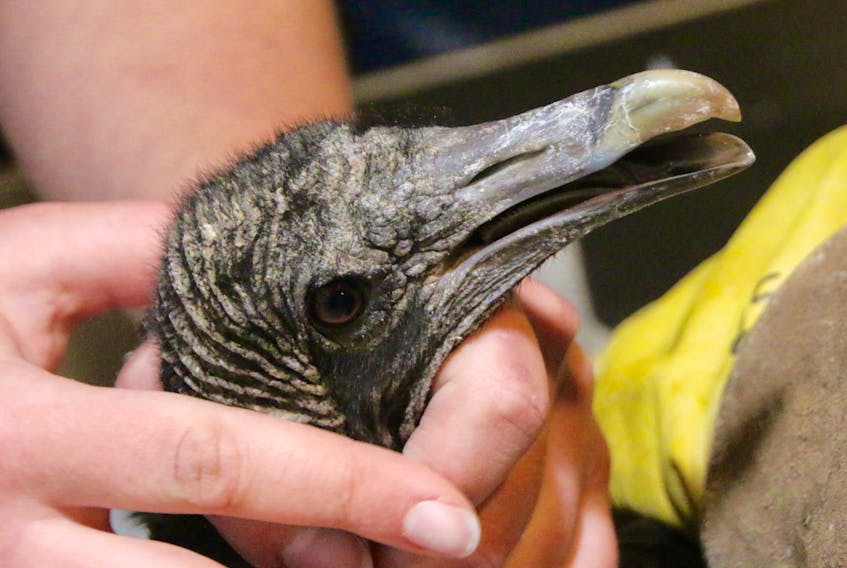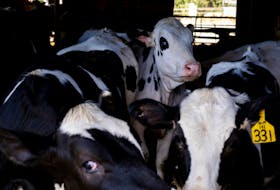This has been adapted by a story by Lynn Curwin.
HILDEN, N.S. — It sounds like a creature from a fantasy novel. It lives a long life, is cloaked in black feathers and emits acidic vomit when accosted by an enemy. But the rare black vulture in care at the Cobequid Wildlife Rehabilitation Centre is very real.
The bird was found grounded near Sydney, but the reason remains a mystery.
“His body condition was great when he came in,” said Murdo Messer, co-founder of the CWRC.
“He wasn’t thin and bony.”
Dr. Kathleen MacAulay, a veterinarian from Parade Street Animal Hospital in Yarmouth, who examined the vulture said there was some lead found in his blood “but not enough to cause this.”
“There’s nothing obvious with wings or legs, so why was this fat, feisty bird on the ground?”
Black Vultures
Black vultures are usually found in South America and the eastern and southern U.S., with some now seen in New England. Only about one per year is spotted in Nova Scotia.
They are carrion eaters, though they will sometimes pick food from landfill sites. When threatened they can unleash a foul-smelling, acidic vomit that burns enemies.
Interestingly, they will also often cool off by defecating on their legs.
The birds mate for life and stay with their mates year-round. They lay their eggs, which are pale green or blue, on the ground. The young are covered in yellowish or pinkish down, and hatch with their eyes open.
They feed their young for several months and maintain strong social bonds with their families, roosting together in the evening.
The spunky vulture picked up by the centre put a lot of effort into trying to peck those handling it and escape from their grasp.
It will remain in care throughout the winter.









